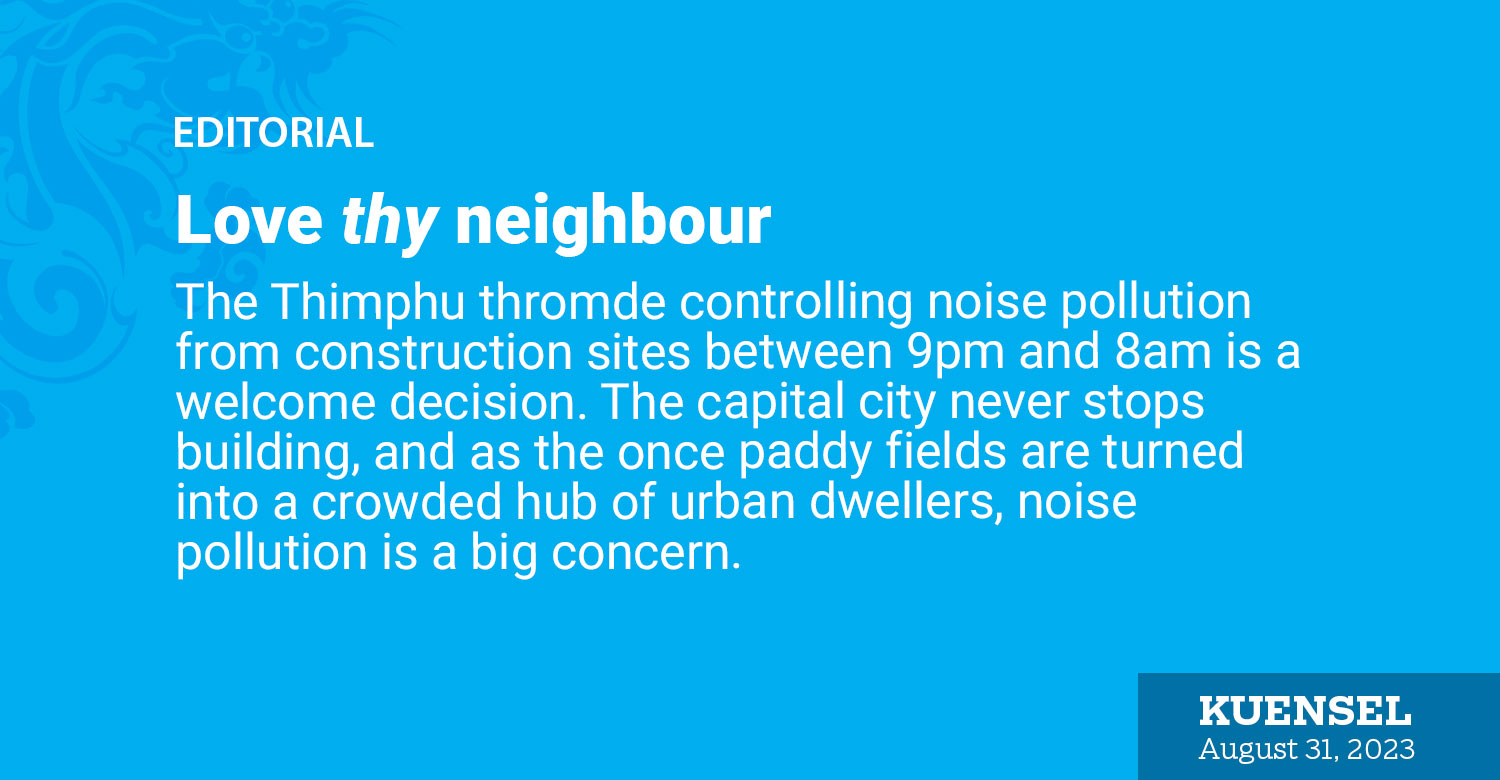The Thimphu thromde controlling noise pollution from construction sites between 9pm and 8am is a welcome decision. The capital city never stops building, and as the once paddy fields are turned into a crowded hub of urban dwellers, noise pollution is a big concern.
Good neighbours we are, not many complain even if the sound of heavy machinery, pounding hammers or shrill noise from the planer machine disturbs the whole neighbourhood. It affects the physical and mental well-being of urban dwellers.
The assumption is that we cannot control sound and let builders build during the day, despite the pollution. However, there are means to reduce noise from construction sites or machinery and it should be done. In fact, there is no time of the day or night that any pollution should be allowed.
While our landscape has changed or is changing fast, we are not adjusting to the urban environment. It is not Ap zow’s axe or the patang shredding poles or singing women pounding mud that is becoming unbearable. The problem is with the loud noise from cement mixers, planners, diesel-powered lifts and other machines used in construction.
Apart from scheduling noisy activities during less sensitive hours, urban planning and construction guidelines should incorporate noise mitigation strategies. There are equipment and technologies available to reduce noise emissions that could be made mandatory for construction in crowded neighbourhoods.
We cannot stop the frenzy of construction or the rapid urbanization. There are many other issues the so-called urbanites face as we all rush to settle in towns. And it could become worse if we cannot develop the sense or courtesy to live harmoniously in an urban community.
Urban residents were quick to point out other sources of noise, such as bikes without exhaust pipes, honking trucks or cars, and high heels or boots climbing stairs at odd hours. These indicate not the need for more regulations, but the necessity for a sense of civic responsibility, respect or consideration of each other living in close proximity.
To a large extent, neighbours tolerate each other, whether they are pounding shakam or cooking gep in pressure cookers disturbing the sick downstairs or across the narrow corridor. The occasional evil-chasing rimdos are already becoming a nuisance to those not believing in it even if it is sensitive to question.
As we live in close communities forced by urbanisation, we will live in harmony only if we follow established norms and rules of urban living. This includes controlling noise pollution or shared responsibility of keeping surroundings clean. We cannot depend on the thromde cleaners to clear a drain in front of the building or regulations to control air or noise pollution.
In many countries (where many Bhutanese have worked and lived), it is customary to switch off or turn down the volume of the TV or the music player after 11pm. Construction noises are barely audible, let alone disturbing, even if it is happening in the vicinity. Such small actions result in a harmonious existence.


